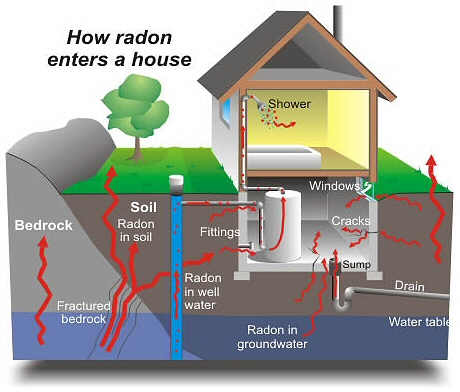 What is radon?
What is radon?
Radon is a radioactive gas that is formed when rock or brick decomposes. It is a form of radioactive decay usually found in gravelly, sandy-mixed soils. Radon levels can vary drastically from house to house, even in the same neighborhood. High radon levels can affect homes whether they are new or older, and are often undetected.
Health risks associated with radon
The primary routes of potential human exposure to radon are inhalation and ingestion. Radon can cause lung cancer over a long period of time. According to the Environmental Protection Agency (EPA), radon “is the number one cause of lung cancer among non-smokers” and is responsible for approximately 21,000 deaths per year. In addition, people with other respiratory illnesses may also worsen if they continue to breathe in this gas.
Radon Inspection
A Radon Inspection is very important when purchasing a home. A radon test consist of placement of radon test kit at your future home and is left for specific amount of time, once completed the kit will be sent to a lab for analysis. We also use continuous radon monitors that are EPA verified. The monitor will be placed in the home for at least 48 hours and collects radon measurement every hour to provide a full and accurate data. The device is plugged into a regular wall outlet and is also equipped with a battery for backup, the device will also show if the machine has been tampered. Annually, our monitors are sent back to the manufacturer’s labs for safety and accuracy calibration.
If your home is found to have elevated levels of radon gas (at above 4.0 pCi/L), methods can be applied to reduce the levels and therefore reduce the health risks associated with radon. Active soil depressurization (ASD) is one of the most common methods of radon mitigation.
If a radon test comes back high, some ways to alleviate the radon could be: sealing concrete slab floors, basement foundations, and water drainage systems. This could be a costly fix, suggesting the importance of radon inspections.
This guide answers important questions about radon and lung cancer risk. It also answers questions about testing and fixing for anyone buying or selling a home. (Revised March 2018)
- Home Buyer’s and Seller’s Guide to Radon (PDF)(39 pp, 2 MB, March 15, 2018, EPA 402/K-13/002)
Resource: https://www.epa.gov/radon